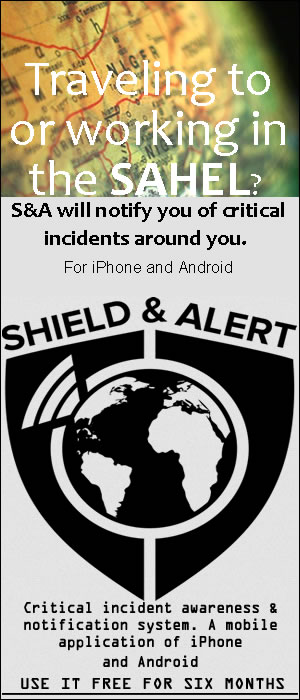Photo: AQIM’s Abu Ubaidah Youssef al-Annabi:
Arezki’s opinion: It may be too early to conclude that there is an easing of tension between Al-Qaeda in the Islamic Maghreb (AQIM) and France, in particular. But there are some tidbits of evidence that suggest a potential refocusing of both parties and a cooling off of tension between them. In a rare interview given to French journalist Wassim Nasr, the head of AQIM, Abu Ubaidah Youssef al-Annabi, said his group has no intention on targeting France’s territory. Although he remained evasive on targeting French nationals in the Sahel, the first statement indicates that AQIM may not be so focused on inflicting pain to Europe anymore. The interview then followed with the released of two western hostages, French journalist Olivier Dubois and American aid worker Jeffery Woodke, and what may be another signal that the two sides of the conflicts, in this case AQIM and the West (France/US), may be looking to turn a new page given the evolution of global geopolitics and threats that may be affecting all of them.
On another front, Iyad Ag Ghaly, the leader of the Support Group for Islam and Muslims (Jama’at Nasr al-Islam wal Muslimin (JNIM), a group also affiliated to Al Qaeda, has recently singled out Russia’s mercenaries of the Wagner Group as “miscreants to be slaughtered.” Since the arrival of the Russian force, JNIM has increased its attacks against the mercenaries with ambushes and IEDs. In-depth analysis here.
These events may signal a shift of events in the Sahel, that became more possible after France announced the end of its Barkhan security operation. In addition, insurgents also released two International Committee of the Red Cross employees they’ve held since March.
And so now the question is “the enemy of my enemy is my friend” make insurgent groups more acceptable to Paris and Washington? Time will tell.
Red Cross says two kidnapped workers released in Mali
Two International Committee of the Red Cross employees kidnapped in early March in northern Mali were released on Sunday, the organisation’s Malian branch announced. “We confirm that the two ICRC employees kidnapped on March 4 between (the cities of) Gao and Kidal in northern Mali were released this evening,” it said on Twitter. “Our colleagues are well and have been released unharmed without conditions. We thank all those who contributed to their release.”
Mali has been gripped by a security and political crisis since 2012 when jihadist and separatist insurgencies broke out in the country’s north. Jihadists affiliated with Al-Qaeda and the Islamic State group have escalated their operations into central Mali, and the unrest has spread to neighbouring Niger and Burkina Faso. Thousands of civilians, police and troops have been killed across the region, and more than two million people have fled their homes. The ICRC has been in Mali for over three decades. Its director of operations, Martin Schuepp, said last year that crime was rife in the country and posed a security challenge.




